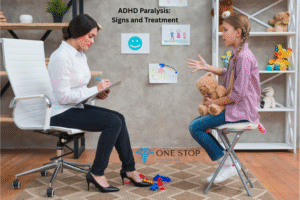Addiction is a complex disease that can have many different causes. But regardless of the root cause, addiction always involves changes in the brain. These changes can make it difficult for people to quit on their own, which is why medications like naltrexone can be so helpful. Naltrexone is a medication that helps to normalize brain chemistry and reduce cravings, making it an important tool in the fight against addiction.
What is Naltrexone?
Naltrexone is a medication that has been shown to be effective in treating addiction. It works by blocking the effects of drugs, such as opiates, on the brain. This can help to reduce cravings and prevent relapse. Naltrexone is available in both oral and injectable forms.
How does Naltrexone work?
It is a medication that has been shown to be effective in the treatment of addiction. It works by blocking the effects of opioids, such as heroin and morphine, on the brain. This can help to reduce cravings and prevent relapse. Naltrexone is usually taken as a pill or an injection. It can also be used as an implant, which is placed under the skin.
What are the benefits of taking Naltrexone for addiction?
Naltrexone is a medication that can help with addiction by reducing cravings and helping to prevent relapse. It can be taken as a pill or as an injection, and it works by blocking the effects of opioids. This means that if you take this and then use opioids, you will not feel the high that you would normally feel. This can make it easier to stay away from opioids and other drugs, and it can help you recover from addiction.
Are there any side effects of taking Naltrexone?
Yes, there are potential side effects. These include nausea, vomiting, headaches, dizziness, drowsiness, and trouble sleeping. However, these side effects are typically mild and go away with time. If they persist or become severe, please consult your doctor. It can also be used to help with other substance abuse disorders. It works by blocking the effects of drugs and alcohol in the brain. This can help to reduce cravings and prevent relapse.
However, like all medications, there are potential side effects of taking this. These can include nausea, vomiting, headache, fatigue, drowsiness, and insomnia. Some people may also experience anxiety, depression, or mood swings when taking Naltrexone. It is important to speak with your doctor about any potential side effects before starting this medication.
How to get started with Naltrexone treatment
If you or someone you know is struggling with addiction, naltrexone may be a treatment option worth considering. Naltrexone is a medication that can help to reduce cravings and withdrawal symptoms, making it easier to stay on the path to recovery.
Starting this treatment can seem daunting, but we’re here to help. In this blog post, we’ll walk you through what you need to know to get started with naltrexone treatment, including how to find a provider and what to expect during treatment.
If you have any questions along the way, don’t hesitate to reach out to us at One Stop Psychiatry for support.
How does Naltrexone help with addiction?
Naltrexone is a medication that has been shown to be effective in treating addiction. It works by blocking the effects of drugs, including the high that they can cause. This can help to reduce cravings and the risk of relapse.It can be taken as a pill or as an injection, and it is usually taken once a day. It is important to talk to your doctor about whether it is right for you, as it can have side effects and may not be suitable for everyone.
Who should not take Naltrexone?
There are a few reasons why someone might not be a good candidate for taking naltrexone. These include:
-If you’re pregnant or breastfeeding
-If you have liver disease
-If you have kidney disease
-If you have a history of mental health problems
-If you’re allergic to naltrexone or any of its ingredients
If you have any of these conditions, it’s important to talk to your doctor before starting this. They can help you weigh the risks and benefits of taking the medication.
Where can I get Naltrexone?
Naltrexone is a prescription medication that can be used to help treat addiction. It is available in both pill and injectable form, and can be taken either once a day or as needed. It can be obtained through a variety of sources, including online pharmacies, drugstores, and doctor’s offices.
Conclusion
In conclusion, naltrexone can be a helpful tool in the fight against addiction. It is important to note that it should only be used under the supervision of a qualified medical professional, as it can have serious side effects if not used properly. If you or someone you know is struggling with addiction, please reach out for help. There are many resources available to those who need them and there is no shame in admitting that you need assistance. With the right help, anyone can overcome addiction and go on to lead a happy and healthy life.




